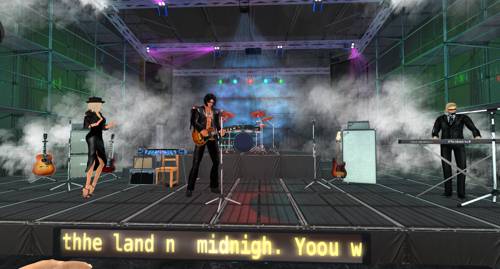
FAQ About The Impact of Virtual Concerts on Music Industry Dynamics

What are virtual concerts?
Virtual concerts are live performances by artists that are broadcasted over the internet, allowing fans to watch and participate from anywhere in the world. These concerts can be streamed on various platforms such as YouTube, Twitch, or dedicated virtual concert platforms. They often include interactive features like live chats, virtual meet-and-greets, and exclusive content access, providing a unique concert experience without the need for a physical venue.

How have virtual concerts impacted the music industry?
Virtual concerts have significantly impacted the music industry by providing artists with new revenue streams and audiences. They eliminate geographical barriers, allowing artists to reach a global audience directly. Additionally, the reduced costs of staging virtual concerts as compared to traditional live events mean more artists can produce concerts without financial strain. This transformation has also pushed the industry towards adopting more digital marketing strategies and leveraging technology to enhance fan engagement.

What are the benefits of virtual concerts for artists?
Virtual concerts offer several benefits for artists, including reaching a wider audience without geographical constraints, reducing the costs associated with physical venues, and increasing artist-fan interaction through real-time engagement features. They also provide opportunities for artists to experiment with new forms of content delivery and monetization strategies, such as ticket sales, merchandise, and virtual meet-and-greets, expanding their revenue potential.

What platforms are typically used for hosting virtual concerts?
Several platforms are commonly used for hosting virtual concerts, including YouTube, Facebook Live, Instagram Live, Twitch, and dedicated music streaming services like TIDAL and LiveXLive. Some artists also use virtual reality platforms or create interactive experiences through platforms like Fortnite or Roblox. These platforms offer various features to enhance the concert experience, such as high-quality video streaming, live chats, and interactive content.

How do virtual concerts enhance artist-fan interaction?
Virtual concerts enhance artist-fan interaction by offering features such as live chats, interactive Q&A sessions, and virtual meet-and-greets. Fans can engage with the artist directly, share their experiences in real-time with other attendees, and sometimes influence the performance through polls or song requests. This interactive layer fosters a sense of community and closeness that can be lacking in traditional concert settings.

What are some challenges associated with virtual concerts?
While virtual concerts offer many benefits, they also come with challenges. Technical issues such as streaming lags or limited internet bandwidth can affect performance quality and viewer experience. Additionally, monetizing virtual concerts at a level comparable to traditional live events can be difficult, particularly in preserving the authenticity and energy of a live show. Moreover, there is a learning curve for artists and crews in adapting to new technologies and production techniques.

Can virtual concerts be as engaging as live events?
Virtual concerts can offer different kinds of engagement compared to live events. While they may lack the physical presence and energy of being in a live audience, they compensate with interactive features, personalized experiences, and accessibility. By leveraging technology, virtual concerts can create unique experiences with special effects or global fan participation that aren't possible in traditional settings, thus providing their own form of engagement and excitement.

What role does technology play in virtual concerts?
Technology plays a critical role in virtual concerts, enabling high-quality live streaming, interactive features, and the creation of immersive experiences. Advances in streaming technology, virtual reality, and augmented reality allow for enhanced production values and new forms of audience participation. Technologies like 4K video streaming and high-end audio ensure that the quality of virtual concerts meets or exceeds audience expectations, providing a compelling alternative to traditional concerts.

How have audiences responded to virtual concerts?
Audiences have generally responded positively to virtual concerts, appreciating their accessibility and the ability to enjoy live music from the comfort of their homes. Many fans enjoy the direct interaction with artists and the global connectivity these concerts offer. However, some audiences miss the ambience and communal experience of live physical events. Overall, virtual concerts have carved out a valuable niche, especially during times when in-person events are limited.

What is the future of virtual concerts in the music industry?
The future of virtual concerts looks promising, with increased adoption expected even as live events resume. They are likely to evolve with more immersive experiences using VR and AR, hybrid models combining virtual and physical elements, and enhanced interaction features. The industry is investing in technology that can further blur lines between physical and virtual spaces, indicating that virtual concerts will remain a significant component of the music industry's landscape.

How do virtual concerts generate revenue for artists?
Virtual concerts generate revenue through various streams, including ticket sales, merchandise sales, virtual meet-and-greet packages, sponsorships, and advertisements. Artists can also charge for access to exclusive content or experiences that are only available during the concert. Additionally, some platforms offer tipping or donation features, allowing fans to financially support their favorite artists directly.

Are there any specific genres that benefit more from virtual concerts?
While all music genres can benefit from virtual concerts, those with strong online communities or that can incorporate visual and interactive elements tend to thrive. Genres like electronic music, pop, and K-pop have seen significant engagement due to their visually appealing performances and tech-savvy fanbases. However, any genre can leverage virtual concerts effectively with the right approach to audience interaction and content presentation.

Have virtual concerts affected the way music is promoted?
Yes, virtual concerts have influenced music promotion strategies by increasing the importance of digital marketing and social media engagement. Artists leverage these platforms to build anticipation, communicate directly with fans, and foster a sense of community. The global reach of the internet allows for more inclusive promotional campaigns that can tap into diverse markets and demographics, enhancing overall visibility and fan engagement.

What technologies are commonly used in virtual concerts?
Common technologies used in virtual concerts include high-definition video streaming, virtual reality (VR), augmented reality (AR), and 360-degree video. Platforms may also use interactive features like chat rooms, real-time feedback, and digital merchandise booths. These technologies help create an immersive concert experience that can engage audiences in innovative ways, often enhancing the artistic presentation of the performances themselves.

Can virtual concerts replace live in-person events?
While virtual concerts offer unique experiences and advantages, they are generally seen as complements rather than replacements for live in-person events. Many fans still crave the physical atmosphere and energy of being present at a live venue. However, virtual concerts provide an alternative that can reach broader audiences and offer unique features not possible in physical settings, making them an invaluable part of the overall concert landscape.

How do virtual concerts cater to global audiences?
Virtual concerts cater to global audiences by removing geographical barriers, allowing fans from anywhere in the world to participate. They can be hosted across multiple time zones or replayed so fans can join at their convenience. Language options, subtitles, and social media engagement help make these events more inclusive. Additionally, global streaming platforms enable artists to reach a wider audience than they might be able to with traditional live tours.

What are some examples of successful virtual concerts?
Examples of successful virtual concerts include Travis Scott's "Astronomical" event in Fortnite, which attracted millions of viewers; BTS's "Bang Bang Con" series, which garnered a massive global audience with their interactive setups; and Dua Lipa's "Studio 2054," which fused live performances with digital experiences, attracting hundreds of thousands of viewers. These examples highlight how creativity and technology can come together to create memorable virtual concert experiences.

How have virtual concerts influenced music production?
Virtual concerts have influenced music production by encouraging artists to think creatively about how their music is presented in a digital format. Artists are experimenting with audio-visual effects, stage designs, and interactive elements that can only be leveraged in virtual spaces. This has led to innovative approaches in both music and video production, enhancing the overall artistic impact of concerts and recorded performances.

Do virtual concerts have environmental benefits?
Yes, virtual concerts offer environmental benefits by reducing the carbon footprint associated with traditional live events. They eliminate the need for large-scale travel for both artists and fans, reducing emissions from transportation. Virtual concerts also decrease the environmental impact of physical venue operations, such as waste production and energy consumption. As a result, they present a more sustainable alternative or supplement to conventional concerts.

How do virtual concerts influence fan loyalty?
Virtual concerts can boost fan loyalty by providing more frequent and accessible opportunities for fan-artist interaction. The interactive elements of virtual concerts, such as live Q&A sessions and personalized fan experiences, help deepen the connection between artists and their fans. This continuous engagement can lead to stronger fan communities and enhanced loyalty, as fans feel more connected and appreciated by their favorite artists.
